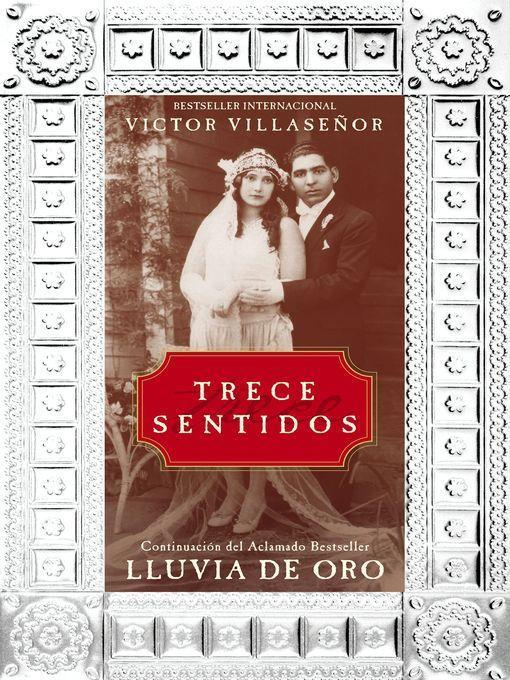
Trece Sentidos
کتاب های مرتبط
- اطلاعات
- نقد و بررسی
- دیدگاه کاربران
نقد و بررسی

September 3, 2001
Fans of Villaseñor's admirable family epic, Rain of Gold
(Arte Publico, 1991) will be hard-pressed to wade through this massive, workmanlike sequel. The book's humorous opening—at the 50th-anniversary renewal of Villaseñor's parents' wedding vows, the "bride" refuses to say "obey" as her sister catcalls from the front pew about the groom's unreliability—gives way to a series of simplistic feminist diatribes followed by a nasty family squabble. The author then tracks his mother and father, Lupe and Salvador, through the passionate and turbulent first years of their marriage, always shadowed by Salvador's bootlegging and deceit, always redeemed by Lupe's fiery strength, her bottom-line common sense and a hearty helping of sex. Lupe follows Salvador around Mexico on his criminal and other exploits before putting her foot down; the book leaves them at the start of a presumably lawful, relatively calm life in California. Though the author espouses feminist views, his female characters are one-dimensional, axiom-spouting cultural stereotypes: suffering, saintly and bitter. Where the earlier book offered an enjoyable, unreconstructed representation of early 20th-century rural Mexican culture, here that culture has been infected by a feel-good mysticism that even the California setting doesn't excuse. The story meanders through linguistic anachronisms (no man in 1929 would have said "full Latina
hips"), mixed metaphors, aimless digressions, countless exclamation marks and warmed-over New Age imagery like "The Father Sun was now gone, and the Mother Moon was coming up, and the Child Earth was cooling." The author's central question about his parents' relationship—"Was it love?"—brings a neat if superficial unity to the narrative. 8 pages b&w photos not seen by PW.

September 1, 2001
This is a fascinating, if problematic, account of the early married life of the author's parents, a young Mexican American couple living in California and coping with the economic and social effects of the Great Depression. Continuing the family saga he began in Rain of Gold, Villasenor tells of his father, Salvador, an extremely moral man who, paradoxically, bootlegs liquor to earn a living. His young bride, Lupe, who is beautiful and intelligent but also conventional and na ve, is kept ignorant of Salvador's livelihood until she is pregnant with their first child a dilemma the reader will be anxious to see resolved. However, the book delves too much and too often into private prayers and their alleged responses from God, the Virgin Mary, and a host of intervening angels. The theory of 13 senses is intriguing, but one grandmother's know-it-all spirituality becomes tiresome after its fifth or sixth intrusion into the narrative. Villasenor is at his best when portraying the realm of social reality, including the effects of the Mexican Revolution. While libraries will not need yet another spiritual instruction manual, this book merits space on the shelves of most public libraries for the author's skill in depicting his parents' circumstances and social evolution. [Rayo is simultaneously publishing Los Trece Sentidos, the Spanish-language edition of this book, ISBN 0-06-621297-9, $26. Ed.] Nedra C. Evers. Sacramento P.L., CA
Copyright 2001 Library Journal, LLC Used with permission.

























دیدگاه کاربران